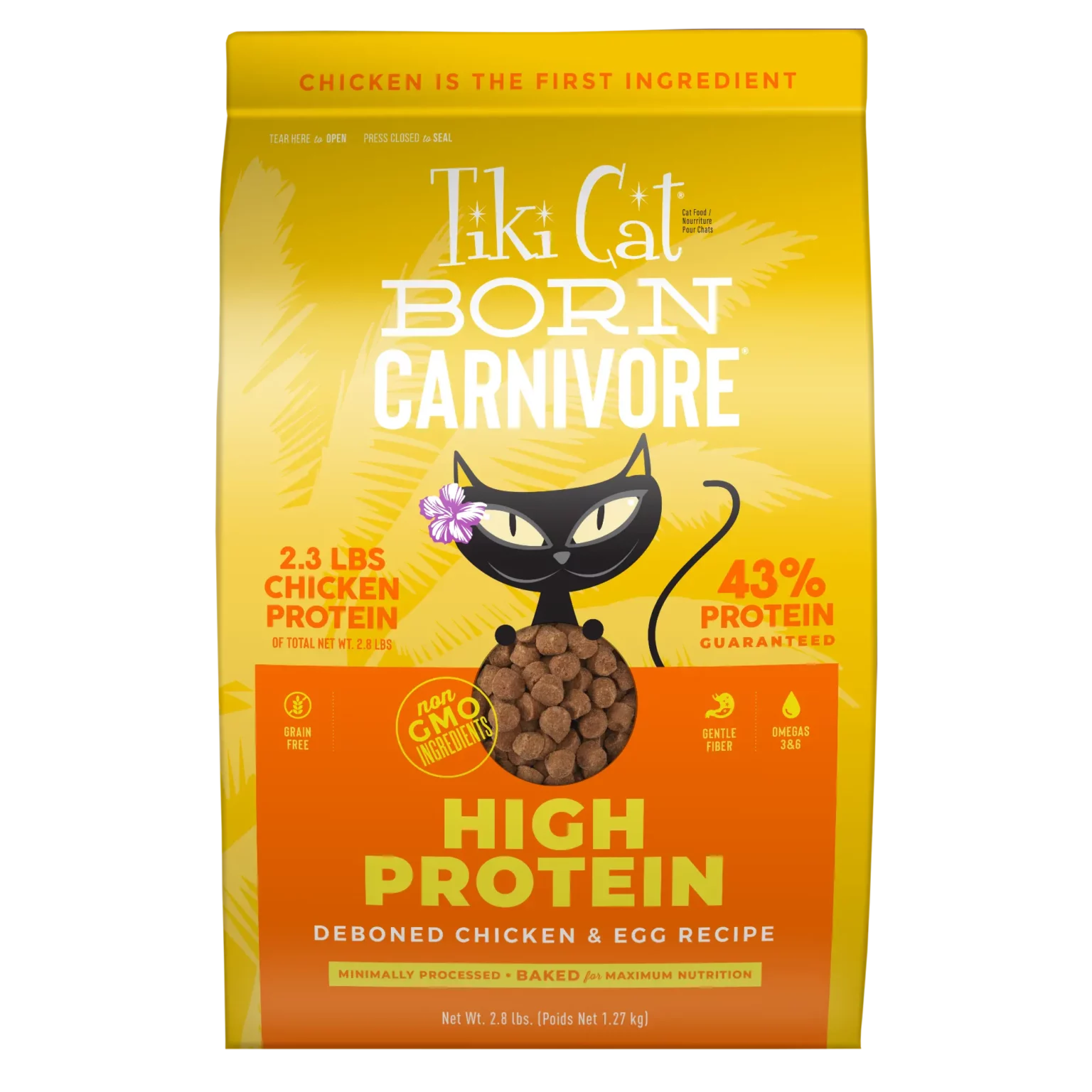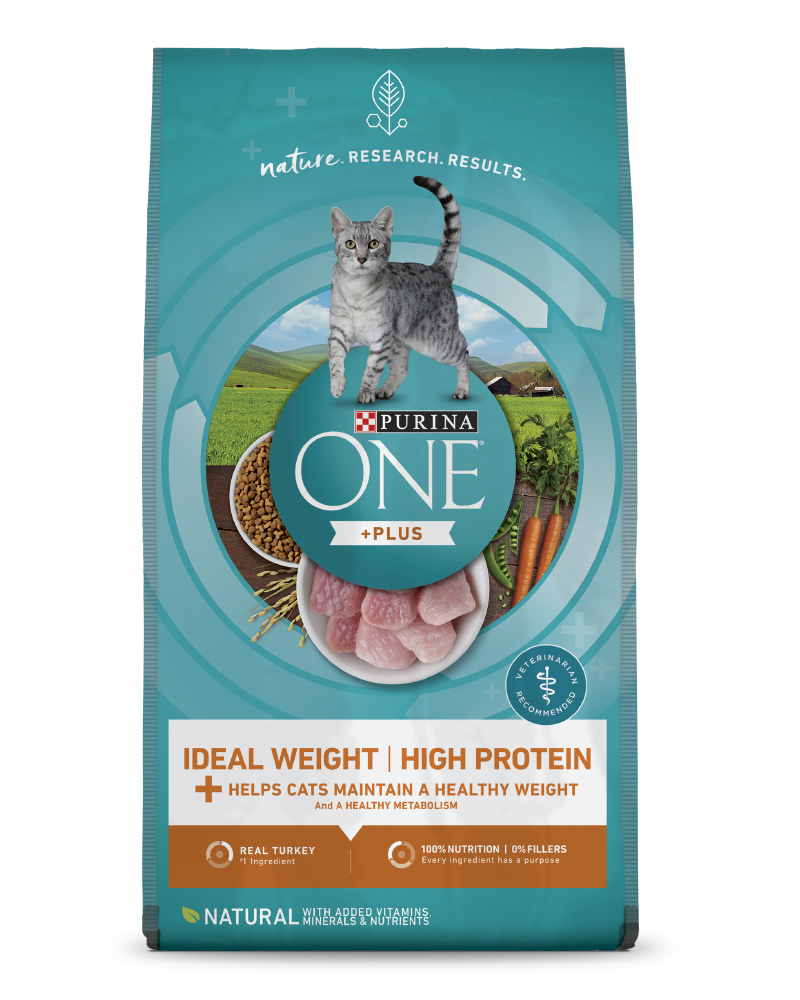Cat High Protein Diet supports muscle growth and overall health. It provides essential nutrients for active and healthy felines.
Cats are obligate carnivores, meaning they require a diet rich in animal proteins. High-protein cat food mimics their natural diet and ensures they receive essential amino acids. These proteins support muscle development, repair tissues, and maintain a healthy immune system.
Balanced high-protein diets also help manage weight and reduce the risk of obesity. Choosing high-quality, protein-rich cat food can lead to improved energy levels, better digestion, and a shiny coat. Pet owners should look for foods with real meat as the primary ingredient to meet their cat’s nutritional needs effectively. Proper nutrition is key to a happy, healthy cat.
Table of Contents
Importance Of Protein
Protein is essential for your cat’s health. It helps build muscles and repair tissues. Cats need a diet rich in protein to stay active and healthy. Let’s explore why protein is so important.
Nutritional Needs
Cats are obligate carnivores. They need protein to survive. Their bodies cannot produce essential amino acids. These acids come from animal-based proteins. A cat’s diet should include meat, fish, or poultry.
| Nutrient | Source |
|---|---|
| Protein | Meat, Fish, Poultry |
| Amino Acids | Animal Proteins |
Protein Benefits
Protein offers many benefits for cats. Here are some key advantages:
- Muscle Growth: Protein helps build strong muscles.
- Energy: It provides the energy cats need to play and hunt.
- Healthy Skin and Coat: Protein keeps their skin and fur healthy.
- Immune System: It strengthens their immune system.
Protein is also important for their organs. It ensures proper function of the heart, liver, and kidneys.
- Builds muscles
- Provides energy
- Keeps skin and fur healthy
- Strengthens immune system
- Supports organ function

Credit: tikipets.com
Choosing Quality Protein
Choosing the right protein for your cat is essential. Protein supports their muscle growth, energy, and overall health. Learn how to select the best quality protein for your feline friend.
Animal vs. plant Protein
Animal protein is often considered superior for cats. It closely matches their natural diet. Cats are obligate carnivores. They thrive on meat-based proteins.
Plant protein can be part of a balanced diet. But it’s not a complete solution. Plants lack essential amino acids cats need. Always ensure animal proteins are present.
| Animal Protein | Plant Protein |
|---|---|
| High in essential amino acids | Lacks some essential amino acids |
| Better digestibility for cats | May cause digestive issues |
| Supports muscle growth and energy | Needs supplementation |
Reading Labels
Always read the labels on cat food packages. They provide valuable information. Look for the following key points:
- Protein source: Ensure the first ingredient is animal-based.
- Protein content: Check for a high protein percentage.
- Amino acids: Look for taurine, an essential amino acid.
- Fillers: Avoid foods with excessive fillers like corn or soy.
By understanding these points, you can make informed decisions. Choose high-quality protein for your cat’s health and happiness.
Health Benefits
Feeding your cat a high-protein diet offers many health benefits. Cats are obligate carnivores, requiring protein for optimal health. A diet rich in protein supports muscle growth, coat condition, and overall well-being.
Improved Muscle Mass
High protein diets help cats build and maintain muscle mass. Protein provides essential amino acids. These are the building blocks for muscle. Cats on high-protein diets often have stronger muscles. They are also more active and playful.
| Benefit | Description |
|---|---|
| Stronger Muscles | Protein aids in muscle growth and repair. |
| Increased Activity | Well-fed muscles keep cats playful and energetic. |
Enhanced Coat Condition
A high-protein diet also improves a cat’s coat condition. Protein is crucial for healthy skin and fur. Cats on such diets have shinier, softer coats. The amino acids in protein also reduce shedding.
- Shinier Coat
- Softer Fur
- Less Shedding
Keeping a cat’s coat in good condition is essential. It reflects the cat’s inner health. A beautiful coat indicates a happy, healthy cat.
Types Of High Protein Foods
Cats need high-protein foods to stay healthy and strong. These foods help cats grow, repair tissues, and stay active. Below, we discuss different types of high-protein foods for your cat.
Commercial Diets
Commercial diets are easy to find in pet stores. They come in dry kibble, wet canned food, and freeze-dried options. Always check the labels for high protein content. Look for foods that list meat as the first ingredient.
| Type | Protein Source |
|---|---|
| Dry Kibble | Chicken, Fish, Beef |
| Wet Canned Food | Turkey, Lamb, Duck |
| Freeze-Dried | Rabbit, Venison, Quail |
Homemade Options
Homemade options let you control what your cat eats. Always use fresh, high-quality ingredients. Make sure to cook meat properly to avoid bacteria.
- Chicken: Boiled or baked with no seasoning.
- Fish: Cooked and deboned.
- Beef: Lean cuts, cooked thoroughly.
Adding some vegetables can give extra nutrients. Use cat-safe vegetables like carrots and peas. Always consult with your vet before changing your cat’s diet.
Transitioning To A High Protein Diet
Transitioning your cat to a high-protein diet can be beneficial. Cats are obligate carnivores and thrive on animal-based proteins. A sudden switch can upset your cat’s stomach. Here are some key steps to ensure a smooth transition.
Gradual Introduction
Introduce the new high-protein food gradually. Start by mixing a small amount with your cat’s current food.
| Week | Current Food | High Protein Food |
|---|---|---|
| 1 | 75% | 25% |
| 2 | 50% | 50% |
| 3 | 25% | 75% |
| 4 | 0% | 100% |
This gradual change allows your cat’s digestive system to adjust. Always ensure fresh water is available.
Monitoring Reactions
Monitor your cat’s reactions to the new diet. Look for signs like:
- Increased energy levels
- Shinier coat
- Better muscle tone
Watch for any adverse reactions too. Diarrhea, vomiting, or lethargy may indicate issues.
If you notice any of these signs, consult your veterinarian. They can provide guidance on the best high protein diet for your cat.
Common Mistakes
Feeding your cat a high-protein diet can be very beneficial. Yet, many cat owners make common mistakes that can harm their pets. This section highlights these common pitfalls.
Overfeeding Risks
Overfeeding is a major problem. Cats need specific amounts of food.
Here are some common risks of overfeeding:
- Obesity: Extra weight can lead to health problems.
- Diabetes: Overfeeding can disrupt blood sugar levels.
- Heart Issues: Excess weight strains the heart.
Use a feeding guide to measure portions. Don’t guess the amount of food.
Ignoring Balanced Nutrition
A high-protein diet is good, but balance is key. Cats need more than just protein.
Consider these nutritional needs:
| Nutrition | Why It’s Important |
|---|---|
| Fats | Essential for energy and cell function. |
| Vitamins | Necessary for overall health and immune function. |
| Minerals | Support bone health and metabolic processes. |
Ensure your cat’s diet is balanced. Include all essential nutrients.
Avoid these common mistakes for a healthier and happier cat.
Veterinary Guidance
Choosing the right high-protein diet for your cat is essential. Consulting a vet ensures your cat’s health and wellness. Vets provide expert advice tailored to your cat’s needs.
Consultation Benefits
A vet consultation offers many benefits. They assess your cat’s health status. Vets can detect underlying health issues. A personalized diet plan is created.
Regular check-ups monitor your cat’s progress. Adjustments are made based on health changes. This ensures optimal nutrition and health.
Individual Needs
Every cat has unique dietary requirements. Age, weight, and activity level matter. Some cats need more protein than others. Vets consider these factors in their recommendations.
Vets may suggest specific high-protein foods. They ensure the diet supports your cat’s lifestyle. This helps avoid nutritional deficiencies and health problems.
| Factor | Consideration |
|---|---|
| Age | Kittens need more protein for growth. |
| Weight | Overweight cats need a balanced protein intake. |
| Activity Level | Active cats require more protein for energy. |
A tailored diet plan keeps your cat healthy. Vets guide you through this process. Their expertise ensures the best care for your cat.
Long-term Care
Ensuring your cat’s diet is high in protein is crucial. Long-term care is essential for their health and well-being. Below are some key aspects to consider for long-term care.
Regular Check-ups
Regular veterinary check-ups are vital for your cat’s health. Visit the vet at least twice a year. These visits can identify potential health issues early. Your vet can also provide advice on diet adjustments. Early detection can prevent serious health problems.
Adjusting Diet Over Time
Your cat’s dietary needs may change with age. It’s important to adjust their diet accordingly. Older cats may require more protein. Kittens have different nutritional needs compared to adult cats.
- Consult your vet for diet changes.
- Monitor your cat’s weight and activity level.
- Choose high-quality, protein-rich food.
Consider using a feeding schedule. This helps in maintaining a balanced diet. Avoid free-feeding to prevent obesity.
| Cat’s Age | Protein Requirement |
|---|---|
| Kitten | 30-35% |
| Adult | 25-30% |
| Senior | 28-32% |
Adjusting the diet ensures your cat stays healthy. Always focus on protein-rich food. This promotes muscle development and overall health.

Credit: www.purina.com
Frequently Asked Questions
What Causes High Protein Levels In Cats?
High protein levels in cats can be caused by dehydration, kidney disease, or infections. Regular veterinary check-ups are essential.
Can A Cat Have Too Much Protein?
Yes, a cat can have too much protein. Excessive protein may strain their kidneys and cause health issues. Always follow dietary guidelines.
What Is High Protein For A Cat?
High protein for a cat means food with at least 30% protein content. It supports muscle health and energy levels.
How Do You Treat High Protein In Cat Urine?
To treat high protein in cat urine, consult a vet for diagnosis. Adjust diet, increase hydration, and consider medication if necessary.
Conclusion
Feeding your cat high-protein food supports muscle growth, energy, and overall health. Prioritize quality protein sources in their diet. Always consult your vet for tailored advice. A well-balanced, high-protein diet ensures your feline friend thrives and enjoys a happy, active life.

Pingback: Cat Doesn'T Drink Water But Eats Wet Food: - Naughty pet club
Pingback: What is Cat Vitamins and Supplements?: Essential Boosters
Pingback: Can Cats Eat Tuna- Naughty Pet Club
Pingback: Pregnancy Cycle of Cats: Everything You Need to Know